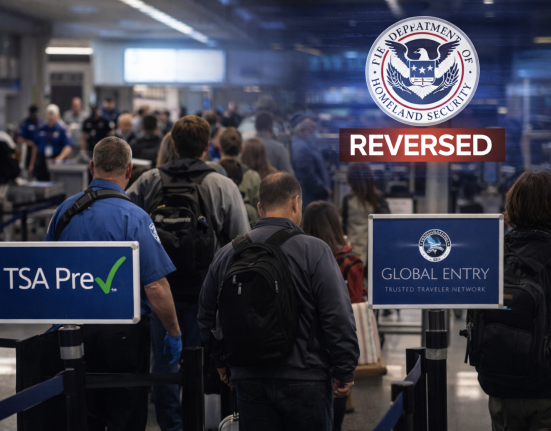On 3 November 2025, Kimberly-Clark announced that it would acquire Kenvue, the consumer-health company behind Tylenol and other over-the-counter brands, in a cash-and-stock deal valued at approximately US$48.7 billion. Under the terms of the transaction, Kimberly-Clark shareholders would own about 54 % of the combined entity, while Kenvue shareholders would hold about 46 %.The merged company is expected to generate roughly US$32 billion in annual revenue and achieve around US$1.9 billion in cost savings over the first three years post-closing.
Kenvue was spun off from Johnson & Johnson in 2023, and had recently faced investor pressure, strategic challenges and controversy—particularly relating to Tylenol’s safety in pregnancy, which became a public-health flashpoint after remarks by prominent figures. The acquisition is presented by the companies as creating a “global health and wellness leader,” combining Kimberly-Clark’s leading paper-goods and hygiene brands (such as Kleenex, Huggies, Cottonelle) with Kenvue’s portfolio of consumer health products (Tylenol, Band-Aid, Listerine, Neutrogena).
The deal still requires approval from both companies’ shareholders and is expected to close in the second half of 2026. Regulatory review is also anticipated given the size and impact of the transaction in the consumer-health market.
Main Points
- Kimberly-Clark is acquiring Kenvue in a roughly US$48.7 billion deal, creating one of the largest consumer-health conglomerates.
- The merged company brings together household brands across categories: hygiene, baby care, over-the-counter medications and oral care.
- Kenvue brings baggage: investor concerns, recent controversies over Tylenol’s pregnancy-safety debate, and corporate leadership turnover.
- Kimberly-Clark will lead the combined entity, with Mike Hsu set to serve as chairman and CEO; three Kenvue board members will join Kimberly-Clark’s board at closing. AP News+1
- The merger emphasises scale, synergies and global positioning in the “wellness” economy—though it is occurring amid wider pressures in consumer health, cost constraints and regulatory scrutiny.
Pros & Cons
Pros
- The merger offers strong scale economy benefits: combining research & development, marketing, global reach and distribution channels could improve efficiency and innovation capacity.
- It may provide stability to Kenvue’s brands amid recent turbulence, giving Tylenol, Band-Aid and others access to broader resources and operational strength.
- For Kimberly-Clark, this move diversifies its portfolio further into “health” and less-cyclical segments, potentially reducing exposure to the slower-growth tissue/hygiene market.
Cons
- The high acquisition price (US$48.7 billion) adds significant risk: value creation depends on achieving the projected US$1.9 billion cost savings and growth synergies—which may be challenging in a mature consumer-goods market.
- The reputation risks associated with Tylenol (pregnancy-safety debates, lawsuits) could persist and affect the merged company’s public perception and regulatory exposure.
- Integration of two large businesses, brand sets and corporate cultures always carries execution risk: disruption, margin dilution or brand-conflict could emerge.
- Regulatory and antitrust scrutiny might impose conditions, prolong closing or reduce anticipated benefits.
Projections & What It Means for the Future
- Market positioning: The merger positions the combined company to compete more aggressively against global rivals (‐for example, Procter & Gamble, Unilever) in the consumer-health category, potentially reshaping industry structure.
- Brand & safety constant: Tylenol’s ongoing safety debates (e.g., the US Food and Drug Administration’s stance on acetaminophen use in pregnancy) remain relevant; the new entity may need to devote resources to risk-management, transparent science communication and liability mitigation.
- Innovation and growth: With a larger combined R&D and brand platform, the company may invest more in digital health, preventive wellness and adjacent categories—shifting from commodity goods toward more value-added products.
- Shareholder value: Success will hinge on integration, cost-savings delivery and growth; if those fail, the deal may underperform, affecting shareholder returns and market confidence.
- Regulatory environment: Large consumer deals are increasingly scrutinised for their competition, supply-chain impact and consumer-safety implications. The combined company may face tighter oversight.
- Employment and supply chain: Consolidation may lead to changes in operations, possible rationalisations, global sourcing shifts or innovation-centre relocation—impacting jobs, supplier relationships and local economies.
References
- Chapman, Michelle & Murphy, Tom. “Tylenol, Kleenex, Band-Aid and more put under one roof in $48.7 billion consumer brands deal,” The Associated Press, Nov 3 2025.
- “Kimberly-Clark to buy Tylenol maker Kenvue in landmark $40bn merger,” The Guardian, Nov 3/4 2025.
- “Kenvue urges US FDA to reject request for Tylenol’s autism warning,” Reuters, Oct 20 2025.
- Additional coverage via Houston Chronicle and Journal Courier on merger details.








Leave feedback about this
You must be logged in to post a comment.